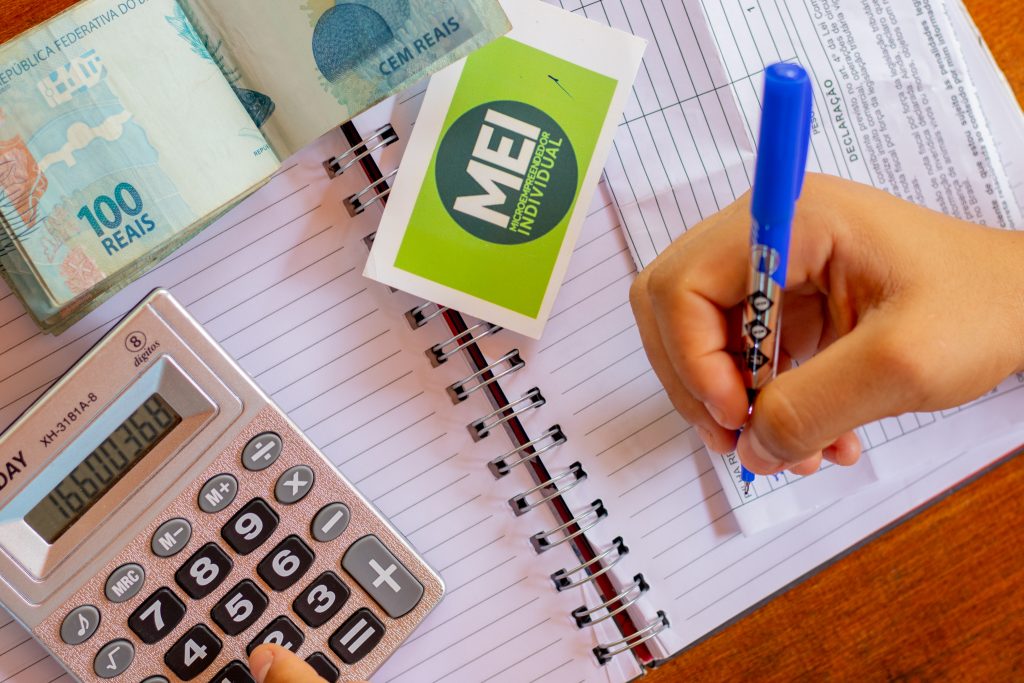MEI, knowing its obligations, avoids fraud by criminals who exploit the lack of information of this category.
The Micro-Entrepreneur Individual (MEI) is a form of business formalization that facilitates access to social security benefits and reduces bureaucracy for small business owners in Brazil.
With a simplified tax system, MEI has clear tax obligations, but sometimes many entrepreneurs get confused about the fees or invoices received.
Unfortunately, scammers take advantage of this lack of knowledge to commit fraud, sending fees that appear legitimate. Understanding the true obligations of MEI is the best way to avoid falling into financial traps and protect your business.
MEI scam can prey on unsuspecting people
Recently, a TikTok user shared an experience that served as a warning to many small entrepreneurs. She reported that she received a bill at home for R$498, issued in the name of Banco Santander.
Meanwhile, he received an email informing him that the invoice was linked to MEI registration, raising concerns that payment was mandatory.
Since many people are not familiar with the MEI rules, this approach can scare entrepreneurs into paying without question. However, the user became suspicious and decided to investigate the origin of the charge.
When I searched for the beneficiary name shown on the invoice, I discovered that it was a private company that provides services to entrepreneurs.
In fact, paying the bill was not linked to the mandatory registration with MEI, but to contracting a service provided by this company.
The practice that is exploited in this type of scam is to send fees that appear to be mandatory, but are actually disguised offers.
If the small business owner pays, they will automatically contract with the company’s services, which may result in new invoices being sent repeatedly each month.
This scam works because entrepreneurs often do not know their true tax obligations and can be misled.
Confusion between official fees and paid service offers is common, so it is important for MEIs to know exactly what they are required to pay and how to recognize fraudulent fees.
Find out more: Watch out, May: you can’t make these mistakes at all!
What are MEI’s tax obligations?
To stay on top of its tax obligations, the MEI must be clear on two key points: DAS payment and DASN-SIMEI delivery.
These two responsibilities are essential to avoiding pending issues and ensuring that small business owners maintain their rights in the system.
Simple National Achievement Document (DAS)
the Stepped It is the monthly invoice that every MEI must pay. It collects the simplified taxes that apply to small business owners, including INSS, ISS (if the MEI provides services) or ICMS (if it operates in the field of trade).
The amount varies between R$ 67.00 and R$ 72.00, depending on the activity carried out by MEI. Payment must be made by the 20th of each month.
This is the only bill that MEI has to pay regularly in order to be able to meet its tax obligations.
If MEI does not pay DAS, it will default and may lose Social Security benefits, in addition to generating penalties and interest.
See others: The company said they won’t hire me unless I open MEI, is that true? Understand your rights!
Annual Declaration of Simples Nacional – Individual Small Business Owners (DASN-SIMEI)
the Dassen-Simi It is the mandatory annual declaration of MEI. It must be submitted by May 31 of each year, and indicates the total revenue of small business owners in the previous year.
The MEI must report the total value of all sales or services performed, even if the majority of the revenue is tax-exempt.
Submitting the DASN-SIMEI is simple and can be done directly through the Federal Revenue website, but it is essential not to miss the deadline to avoid fines.
These are the only tax obligations that every MEI must comply with on a regular basis. Knowing them helps small business owners identify fees that are not related to their responsibilities and avoid falling into fraud.
How to avoid falling into the trap of these tricks?
Avoiding MEI scams requires paying attention and knowing your obligations. Fraudsters use the appearance of legitimate charges to trick businesses and the best defense against this is knowing exactly what to expect and how to act when faced with unexpected bills.
First, MEI must always verify the sender of any invoice or email received. Documents sent by private institutions have no relation to MEI’s tax obligations.
Any invoice related to the registration of small entrepreneurs will always be generated by the Federal Revenue Service through DAS, and is available exclusively on the Entrepreneur Portal or on the Revenue website. Be wary of any fees that are not in the official system.
Another key point is not to pay an invoice without first checking its source. If there are doubts about the legitimacy of the charges, the small business owner can reach out to Entrepreneur Portal And check if there are any real issues pending with your registration.
If there is no debt on file, ignore the charge. A quick Google search using the company name or checking directly with your bank can also prevent you from falling victim to scams.
Finally, always keep your registration details on the Entrepreneur Portal up to date. This ensures that all official communications are sent correctly and avoids the risk of confusing legitimate invoices with commercial offers from third parties.
Don’t miss: Pay in dollars and no interview? Check out 6 sites that pay by the hour and win your nest egg!

“Hardcore beer fanatic. Falls down a lot. Professional coffee fan. Music ninja.”







More Stories
Workers in shock after promise to end Christmas draw and PIS/PASEP bonus for CLT; understands
Which option is best for workers with CPF 1, 3, 5 and 7?
List of the 7 most expensive cities to live in Brazil that seniors flee